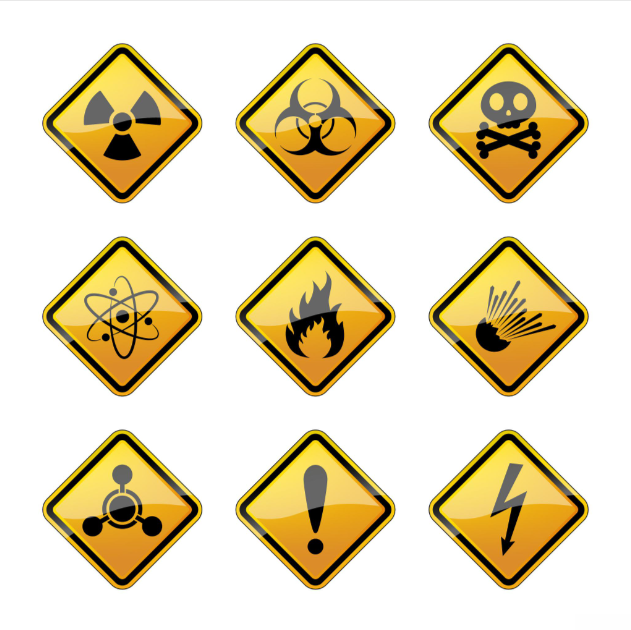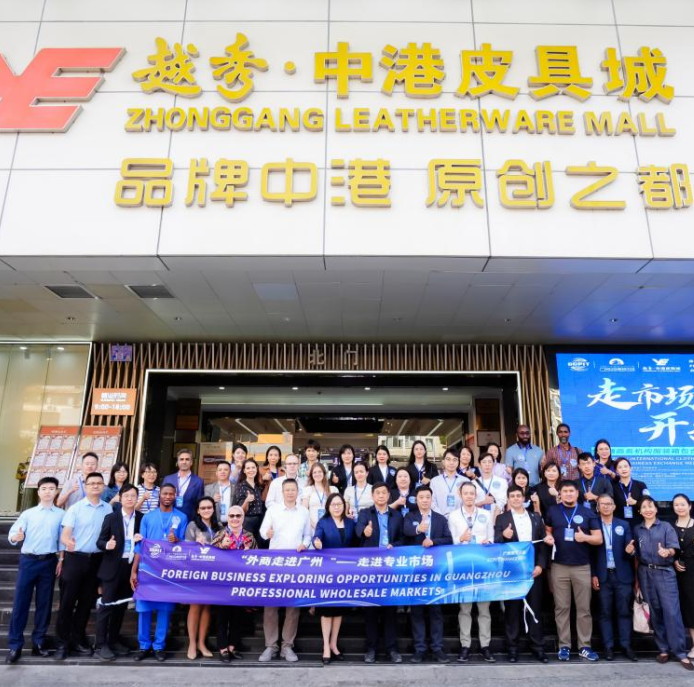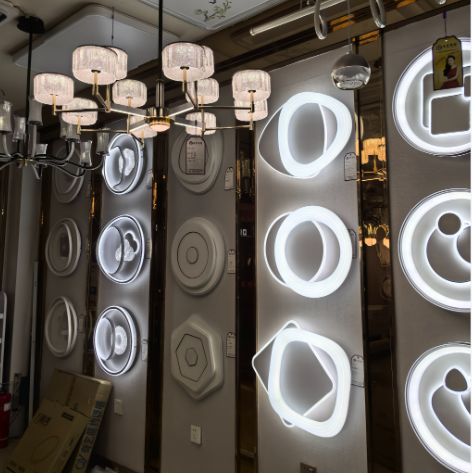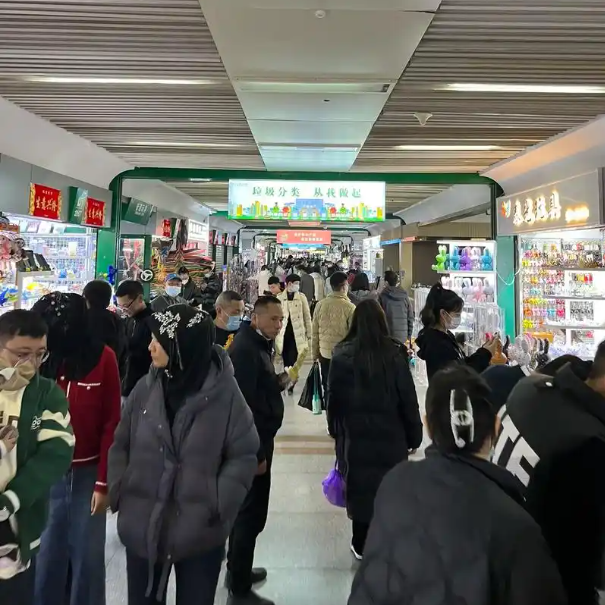Why You Need a Product Sourcing Agent in China: Benefits and Costs
Yiwu to the World: Global Confidence in China’s Trade Shines at the Canton Fair
Introduction — why Yiwu still matters for small appliances & lifestyle products
Yiwu International Trade City is the world’s largest wholesale market for small commodities and remains a one-stop sourcing hub for small kitchen appliances, personal care electricals (hair straighteners, curling irons) and home aromatherapy products (diffusers, reed diffusers, essential oils). The scale and product breadth — tens of thousands of booths and millions of SKUs — make Yiwu ideal for retailers who want fast product discovery, sampling, and small-batch testing before scaling up.
This guide walks you product-category by product-category, explains typical MOQs and certifications to watch for, gives practical quality-control and shipping advice, and provides checklists and negotiation tips so you can source from Yiwu confidently and avoid common traps.
Quick facts (load-bearing highlights)
-
Yiwu International Trade City spans millions of square meters with tens of thousands of booths and over 2 million product SKUs — it’s a global hub for small commodities.
-
You can find almost every type of small home appliance (kettles, blenders, rice cookers, hair dryers, flat irons, curling irons) in Yiwu, often from multiple suppliers and brands.
-
MOQs in Yiwu vary widely by product and vendor; many items are sold by carton and quantities can be flexible for resellers, but expect higher MOQs for custom branding.
-
Electrical appliances intended for export typically must meet destination market safety/compliance standards such as CE/ROHS (EU), UL (US), and may require CCC/other local China certificates depending on use; always confirm with suppliers and test samples.
-
Shipping options from Yiwu include express couriers (fast, expensive), air freight (mid), and sea freight (slow, economical). Choose based on order value, lead time and seasonality.
Section 1 — Kitchen small appliances in Yiwu: what to expect
Product scope & typical suppliers
In Yiwu you’ll find a broad range of small kitchen appliances: electric kettles, blenders, coffee makers, rice cookers, mini ovens, toasters, induction cookers and countertop steamers. Vendors range from trading stalls reselling branded items to local factories and OEM/ODM players offering customization (logo, color, packaging). If you need a budget consumer model, Yiwu often has many immediate samples on-site.
Common buyer use cases
-
Retailers testing seasonal SKUs (e.g., compact blenders for summer smoothies)
-
Amazon/e-commerce sellers launching private-label versions of popular small appliances
-
Boutique stores sourcing giftable kitchen gadgets with custom packaging
Quality & certifications to check
-
For the EU market: CE marking and RoHS (restriction of hazardous substances).
-
For the US market: UL or ETL listings are commonly requested by retailers/marketplaces.
-
For appliances sold inside China, CCC (China Compulsory Certification) may apply for certain categories. Ask suppliers to provide certificates and lab reports and always test third-party.
Pricing & MOQ expectations
-
Basic commodity small appliances can have low per-unit factory prices, but are usually sold by carton — confirm carton count and unit packing. MOQs can be as low as a few dozen cartons for ready-stock items but increase for custom or color variants.
Section 2 — Personal care: hair straighteners & curling irons (what to look for)
Product types & features buyers want
-
Flat irons (1” plates are common best-sellers), 2-in-1 straightener + curler devices, ceramic or tourmaline plates, ionic functions, adjustable temperature control, safety auto-shutdown, and fast-heat features. Many Yiwu suppliers already produce variants matching global e-commerce demand.
Safety and compliance
-
Hair tools are electrical heating devices — performance and insulation tests are critical. For Western markets expect CE/EMC testing and sometimes RoHS. For US distribution, UL/ETL may be required by major retailers. Test heating element durability, thermostat accuracy, and overheat protection. Ask for component datasheets and test reports.
Sourcing tips for hair tools
-
Inspect heating plate finish (ceramic coating uniformity), handle ergonomics, swivel cord quality and strain relief.
-
Request multiple working samples and run burn-in tests (operate at max temp for a set period) to catch early failures.
-
If private labeling, keep packaging simple at first; prove sales, then negotiate MOQ reductions for custom colors/branding.
Section 3 — Home aromatherapy: diffusers, reed diffusers & essential oils
Product categories
Yiwu vendors supply electric ultrasonic diffusers (water-based), nebulizing diffusers, ceramic/wax warmers, reed diffusers, fragrance oils, and packaged essential oil blends. Alibaba and Yiwu supplier pages show many low-MOQ decorative diffusers aimed at boutiques and hotels.
Compliance & ingredient safety
-
For essential oils and fragrance products: ingredient disclosure, hazard labeling, MSDS (material safety data sheets), and fragrance IFRA considerations (if selling fragranced products in the EU) are important. For electric diffusers, the same electrical safety certification guidance applies as for small appliances.
-
If you plan to market essential oils as therapeutic (health claims), you enter regulated territory — avoid making medical claims unless you comply with local law.
Design & private label opportunities
-
Decorative diffusers, waterless hotel-grade units and wood-finish reed diffusers sell well when paired with curated fragrance blends and premium packaging. Yiwu suppliers can often source matching gift boxes and ribboned sets.
Section 4 — How to find the right suppliers in Yiwu
1) On-site market visits vs. remote sourcing
-
On-site: walk the aisles, inspect products directly, source immediate samples, and build personal relationships. Yiwu’s concentration of booths lets you compare dozens of SKUs in a single day.
-
Remote: use Alibaba, 1688, or vetted traders and sourcing agents for initial lists. Always validate with samples and factory visits where possible.
2) Supplier types to expect
-
Trading companies (good for small MOQ and faster sample availability)
-
Manufacturer/factory stalls (better for OEM/ODM and pricing at scale)
-
Branded resellers (retail boxes/authorized distributors)
3) Key questions to ask suppliers
-
“Are the units CE/UL/ETL/CCC tested? Can you provide reports?”
-
“What’s the MOQ for stock and for custom branding?”
-
“Lead time for production and for samples?”
-
“Can we do a pilot order (e.g., 1–2 cartons)?”
Section 5 — MOQ, pricing and packaging: realistic expectations
Typical MOQ scenarios
-
Ready stock / existing SKUs: often sold by carton — you might buy just 1–5 cartons depending on seller flexibility.
-
OEM/ODM customization (logo, color, packaging): expect higher MOQs (hundreds to thousands of units). Examples and MOQs vary by category — consult suppliers early.
Pricing drivers
-
Components (heating plates, motors), certifications, packaging quality, colors/finishes, and order size all affect price per unit. For hair tools, better plates (ceramic/tourmaline) and temperature control raise the cost; for diffusers, wood or glass finishes add price.
Packaging & unboxing
-
Good packaging improves perceived value for giftable items (kitchen gadgets, diffusers). Ask suppliers about available packaging, custom inserts, instruction manuals in target language, and barcode/labeling options.
Section 6 — Quality control (QC) & testing — how to avoid product risk
Vital QC steps
-
Sample testing: Always test multiple samples (functional test, drop/wear tests, heating cycles).
-
Pre-production check (PPC): Confirm components, colors, assembly and markings before mass production.
-
During production inspection (DPI): Random checks while items are being assembled.
-
Pre-shipment inspection (PSI): Final check of finished goods, packed cartons, labeling and documents before departure. Many importers hire third-party QC firms for PSIs (costs often $200–$500).
Lab testing
-
For electrical goods, use accredited labs to test for CE/EMC/ROHS/UL standards as applicable. Keep a copy of lab certificates and report numbers.
Section 7 — Logistics: shipping from Yiwu to your market
Shipping options overview
-
Express couriers (DHL, FedEx, UPS): fastest for samples or small urgent orders; expensive per kg.
-
Air freight: balance speed and cost for mid-sized orders.
-
Sea freight (FCL/LCL): best for large orders; plan for longer lead times and port handling. Choose based on unit value and season.
Documentation & customs
-
Prepare commercial invoices, packing lists, certificates of origin (if claiming preferential tariffs), compliance docs (CE/UL), and any MSDS for fragrances. Work with your freight forwarder to handle customs declarations.
Tariff & trade considerations
-
Be aware of destination tariffs and rules; recent trade policy shifts can affect landed cost unpredictably. Keep a buffer in pricing for duty/tax changes. (News coverage shows trade policy can impact Yiwu exporters and pricing.)
Section 8 — Negotiation, payments and avoiding scams
Negotiation tips
-
Start with small orders to test suppliers and build trust. Use multiple supplier quotes to benchmark pricing.
-
Ask about discounts for larger volumes and for repeat orders. Request package deals (product + packaging).
Safe payment practices
-
Use secure payment methods: T/T with a deposit + balance on B/L, PayPal for small suppliers, or Alibaba Trade Assurance when appropriate. Avoid full upfront payments to unknown sellers.
Red flags
-
Suppliers refusing to provide samples, lacking business registration, or offering prices too good to be true. Verify business licenses and Alibaba/third-party trust indicators.
Section 9 — Packaging, branding & listing optimization for e-commerce
Private label steps
-
Validate bestseller SKUs with small test orders.
-
Use simple but attractive private-label packaging initially.
-
Ensure manuals and compliance markings match your market requirements.
-
Prepare product imaging and listings emphasizing features (e.g., “1-inch ceramic plates”, “auto shut-off”, “ultrasonic 300ml diffuser”).
SEO & product listing tips (for Amazon/eBay/shop)
-
Title: include primary features + product type + brand. Example: “14K Gold Plated Layered Necklace…” (adapted to appliance: “Portable 1L Electric Kettle — Auto Shut-Off, Stainless Steel”)
-
Bullets: list the top benefits (safety, warranty, unique function).
-
Backend keywords: include “kitchen small appliances”, “travel kettle”, “1-inch flat iron” etc. (Use the 8 target keywords above across your site.)
Section 10 — Sample checklist before placing a production order
-
Functional samples tested for heating, safety, battery/cord durability
-
Certificates (CE/UL/ROHS) and lab reports for electrical items
-
Clear MOQ, lead time, unit price and carton counts in writing
-
Packaging mockup and instruction manual proof in target language
-
Agreed inspection plan (PPC/DPI/PSI) and third-party QC contact
-
Shipping terms (Incoterms), estimated freight and customs duties
Section 11 — Working with a Yiwu sourcing agent (when it makes sense)
Advantages
-
Local agents navigate the market faster, speak Chinese and can visit factories, negotiate, perform QC and consolidate shipments. They’re especially helpful if you don’t plan to travel to China.
What to expect in fees
-
Agents charge a commission or fixed fee depending on the scope: supplier search, negotiation, sample handling, QC and shipment consolidation. Factor this into your landed cost.
Short case example (typical buyer story)
A boutique e-commerce seller wanted a private-label ultrasonic diffuser set (diffuser + 2 oils) for holiday gifting. They visited Yiwu, compared 12 suppliers, requested 3 samples, performed a PSI and ordered a pilot run of 300 units with custom boxes. After sales validated demand, they scaled to a 2,000-unit sea shipment with improved packaging and negotiated a lower per-unit price.
Frequently Asked Questions (FAQ)
Q1: Can I buy just a few pieces in Yiwu?
A1: Yes — for many ready-stock items you can buy by the carton; however, for OEM custom items expect higher MOQs.
Q2: Do Yiwu sellers provide CE/UL certificates?
A2: Reputable suppliers can provide test reports or copies of certificates. Always verify with the issuing lab and commission independent lab testing if uncertain.
Q3: Is Yiwu cheaper than Alibaba direct from factories?
A3: Yiwu is convenient for rapid sampling and small orders; direct factory sourcing (via Alibaba or 1688) can be cheaper at scale but typically requires larger MOQs and longer lead times.
Q4: Should I inspect goods in Yiwu?
A4: Yes — a pre-shipment inspection reduces risk of defects and mislabeling. Many buyers hire third-party QC firms for PSIs.
Q5: What are typical shipping lead times?
A5: Express (1–5 days), air (3–7 days plus handling), sea (20–40 days depending on route). Choose based on cost and seasonal demand.





Recent Comments